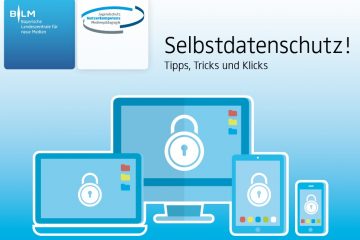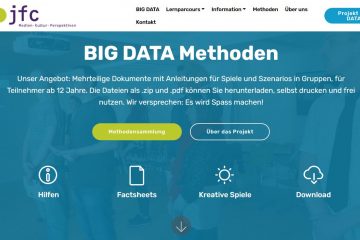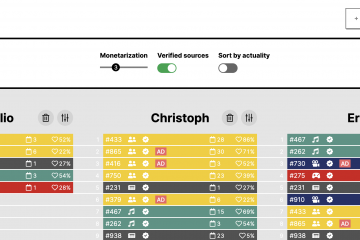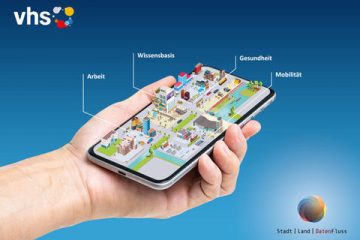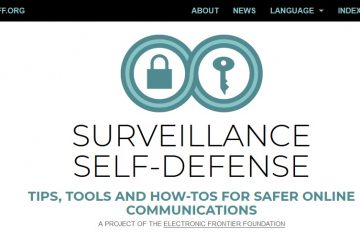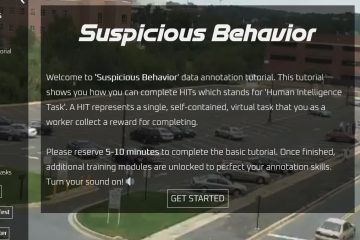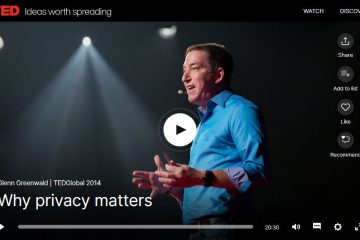Database - Search Results
Tools & Resources
Selbstdatenschutz! Tipps, Tricks und Klicks
Bayerische Landeszentrale für neue Medien (BLM) (2016): Selbstdatenschutz! Tipps, Tricks und Klicks, München. The brochure aims to raise awareness for self-data protection on a number …
The brochure aims to raise awareness for self-data protection on a number of important points and provides practical tips on how to retain - at least partial - control over data when using digital media.
Die Broschüre möchte in einigen wichtigen Punkten für den Selbstdatenschutz sensibilisieren und gibt praktische Tipps, wie man bei der Nutzung digitaler Medien – zumindest teilweise – die Kontrolle über Daten behalten kann.
Tools & Resources
Sensorenjagd
jfc Medienzentrum e. V. (2018): Sensorenjagd. Actionbound-Quiz, Köln. With this quiz, players explore the sensors in their immediate environment and learn where which data is …
"What are sensors and where can they be found in everyday life? From the smartphone in your pocket to your smart home or surveillance in public spaces - with this quiz, players explore the sensors in their immediate environment and learn where what kind of data is collected and what conclusions can be drawn from it."
"Was sind Sensoren und wo findet man sie im Alltag? Angefangen beim Smartphone in der Hosentasche über das smarte Zuhause bis hin zur Überwachung im öffentlichen Raum - Spielende erforschen mit diesem Quiz die Sensoren in ihrem direkten Umfeld und erfahren, wo welche Daten erhoben und welche Rückschlüsse daraus gezogen werden können."
Tools & Resources
Simulator “Plattformdynamiken”
DataSkop (2022). Simulator “Plattformdynamiken”. The simulator “Plattformdynamiken” is an interactive online tool that aims to demonstrate to users how recommendation algorithms (or “recommender systems”) work. …
The simulator “Plattformdynamiken” is an interactive online tool that aims to demonstrate to users how recommendation algorithms (or "recommender systems") work. These are used to sort and recommend content on many online platforms such as YouTube, TikTok, Spotify or sales portals. The simulator allows users to change the parameters of a fictional recommendation algorithms in order to in- or decrease monetization, add ads, verify content or sort by actuality. Through exploring this simulator, users learn about the operational principles and sometimes conflicting interests behind recommendations algorithms.
Der Simulator “Plattformdynamiken” ist ein interaktives Tool, das NutzerInnen aufzeigt, wie Empfehlungsalgorithmen (sogenannte "Recommender-Systeme") funktionieren. Diese werden genutzt um auf Medienplattformen wie YouTube, TikTok, Spotify oder auch in Verkaufsportalen Inhalte zu sortieren und zu empfehlen. Der Simulator gibt NutzerInnen die Möglichkeit, die Parameter eines fiktiven Empfehlungsalgorithmus zu verändern um zum Beispiel Monetarisierung zu regulieren, Werbeanzeigen zu vermeiden, nur verifizierte Quellen anzuzeigen oder Inhalte nach Aktualität zu sortieren. Indem NutzerInnen den Simulator explorativ erkunden, lernen sie die Funktionsweisen und teilweise gegenläufigen Interessen hinter Empfehlungsalgorithmen kennen.
Tools & Resources
Social Cooling
“Just as oil leads to global warming, data leads to social cooling” (Tijmen Schep). The website “Social Cooling” covers the issue of ‘social cooling’. This …
"Just as oil leads to global warming, data leads to social cooling" (Tijmen Schep). The website "Social Cooling" covers the issue of 'social cooling'. This effect, which has also already been identified by academic research, highlights that the ubiquitous data collection makes citizens feel monitored and observed, and many change their behaviour and might even restrict behaviour that could be seen as undesirable. This leads to 'cooling effects', which have lasting implications for freedom of speech and other human rights.
"So wie Öl zur globalen Erwärmung führt, führen Daten zur sozialen Abkühlung" (Tijmen Schep). Diese Webseite behandelt den auch schon in der Wissenschaft untersuchten Effekt des "Social Cooling". Dieser zeigt, dass die ständige Datensammlung von Bürgerinnen und Bürgern dazu führt, dass diese sich überwacht und beobachtet fühlen und letztlich ihr Verhalten ändern sowie möglicherweise unerwünschtes Verhalten einschränken. So kommt es zu 'Abkühlungseffekten', die nachhaltige Folgen für Meinungsfreiheit und andere Menschenrechte haben können.
Tools & Resources
SpiegelMining – Reverse Engineering von Spiegel-Online
Kriesel, David (2016): SpiegelMining – Reverse Engineering von Spiegel-Online. Talk auf dem CCC-Kongress am 28. Dezember 2016. David Kriesel has stored around 700,000 Spiegel Online …
David Kriesel has stored around 700,000 articles from the online journal “Spiegel Online” and their versions since 2014, amassing a huge dataset on an important opinion leader in Germany. In the talk, Kriesel shows how such a dataset can be sorted and evaluated according to certain features, such as how frequently individual headings occur, when the publication period of the individual articles is, text lengths, by day of the week and time, commentability by topic, article versions, etc. He then discusses the sometimes ludicrous inferences, assumptions, conclusions and interpretations that can be drawn from the meta-data and criticizes the high potential for misuse that arises when certain questions are asked of the data set. If the questions are biased, then the risk of misinterpretation is high. The key phrase in his talk is certainly this: "When you publish data, it's not you who decides what you're publishing, it's the adversary who decides." The talk impressively shows how modern data processing can influence a society.
David Kriesel hat seit 2014 rund 700.000 Spiegel-Online-Artikel und ihre Versionen gespeichert und so einen riesigen Datensatz über einen wichtigen Meinungsmacher angehäuft. Im Talk zeigt Kriesel, wie ein solcher Datensatz nach bestimmten Features sortiert und ausgewertet werden kann, beispielsweise wie häufig einzelne Rubriken vorkommen, wann der Veröffentlichungszeitraum der einzelnen Artikel ist, Textlängen, nach Wochentag und Zeit, Kommentierbarkeit nach Themen, Artikel-Versionen etc. Anschließend diskutiert er die teils aberwitzigen Folgerungen, Vermutungen, Rückschlüsse und Interpretationen, die aus den Meta-Daten gezogen werden können und kritisiert das hohe Missbrauchspotential, das entsteht, wenn an den Datensatz bestimmte Fragen gestellt werden. Sind die Fragen vorurteilsbelastet, dann ist die Gefahr von Fehlinterpretationen hoch. Der Schlüsselsatz in seinem Talk ist sicherlich dieser: „Wenn Ihr Daten veröffentlicht, dann entscheidet nicht ihr, was ihr da veröffentlicht, das entscheidet der Gegner.“ Der Talk zeigt eindrucksvoll, wie moderne Datenverarbeitung eine Gesellschaft beeinflussen kann.
Tools & Resources
Stadt | Land | Datenfluss
Deutscher Volkshochschul-Verband e. V. (2021): Stadt | Land | Datenfluss. Berlin. The course “Stadt|Land|Datenfluss” (City|Country|Data Flow) aims to raise awareness of how to deal with …
The course "Stadt|Land|Datenfluss" (City|Country|Data Flow) aims to raise awareness of how to deal with data in a confident manner and to awaken interest in data-based technologies. It is based on the app of the same name developed by the German Adult Education Association (DVV). The browser version is available as an online course and as a mobile version under the CC BY-SA 4.0 license in the app stores at: https://stadt-land-datenfluss.de/ The tool provides a playful approach to the topic of digital sovereignty and is aimed at all interested adults. It covers the topics "Artificial Intelligence", "Internet of Things", "Big Data" and "Data Flow" as well as the fields of action "Health", "Mobility" and "Work" with many opportunities to answer knowledge questions. The course further details the skills learners gain by working through the different topics. In the case of the topic "Big Data," this means being able to explain "what phenomena the term 'Big Data' encompasses," "how large amounts of data are processed," and what data protection issues arise in the process.
Der Kurs „Stadt|Land|Datenfluss“ möchte für einen souveränen Umgang mit Daten sensibilisieren und Interesse an datengestützten Technologien wecken. Er basiert auf der gleichnamigen App, die der Deutsche Volkshochschul-Verband (DVV) entwickelt hat. Die Browserversion gibt es als Online-Kurs und als mobile Version unter der Lizenz CC BY-SA 4.0 in den App-Stores unter: https://stadt-land-datenfluss.de/ Das Angebot bietet einen spielerischen Zugang rund um das Thema digitale Souveränität und richtet sich an alle interessierten Erwachsenen. Es behandelt die Themen „Künstliche Intelligenz“, „Internet der Dinge“, „Big Data“ und „Datenfluss“ sowie die Handlungsfelder „Gesundheit“, „Mobilität“ und „Arbeit“ mit vielen Möglichkeiten, Wissensfragen zu beantworten. Den unterschiedlichen Themen ist jeweils eine Beschreibung der Fähigkeiten vorangestellt, die man nach dem erfolgreichen Durcharbeiten der Themen beherrscht. Im Falle des Themas „Big Data“ bedeutet dies erklären zu können, „welche Phänomene der Begriff ‚Big Data‘ umfasst“, „wie große Datenmengen verarbeitet werden“ und welche datenschutzrechtlichen Fragen dabei entstehen.
Tools & Resources
Start-Up in Datarryn
jfc Medienzentrum (2016): Start-Up in Datarryn, jfc Medienzentrum: Köln. The simulation game raises awareness of a form of data traces that hardly comes to mind …
The simulation game raises awareness of a form of data traces that hardly comes to mind alongside the intentionally disseminated content: metadata that map behaviour very precisely and allow conclusions to be drawn about life circumstances. The game simulates the commercial possibilities in dealing with different data sets. Teams compete against each other to develop the best idea for their start-up company, which profits of this data. In a playful and fun way, participants learn about the opportunities and value of data and develop "legal" and "illegal" ways to use it for profit.
Das Planspiel sensibilisiert für eine Form von Datenspuren, die neben den absichtlich verbreiteten Inhalten kaum ins Bewusstsein rückt: Metadaten, die das Verhalten sehr genau abbilden und Rückschlüsse auf die Lebensumstände erlauben. Das Spiel simuliert die kommerziellen Möglichkeiten im Umgang mit verschiedenen Datensätzen. Es treten Teams gegeneinander an, um die beste Idee für ihr Start-Up-Unternehmen zu entwickeln, welches mit diesen Daten Gewinne macht. Spielerisch und mit viel Spaß erfahren die Teilnehmenden die Chancen und den Wert von Daten und entwickeln „legale“ und illegale“ Formen der gewinnbringenden Nutzung.
Tools & Resources
Surveillance Self-Defense, EFF
Electronic Frontier Foundation (2022): Surveillance Self-Defense. Tips, Tools and How-tos for Safer Online Communications “Surveillance Self-Defense (SSD) is a guide to protecting yourself from electronic …
"Surveillance Self-Defense (SSD) is a guide to protecting yourself from electronic surveillance for people all over the world. Some aspects of this guide will be useful to people with very little technical knowledge, while others are aimed at an audience with considerable technical expertise and privacy/security trainers. We believe that everyone's threat model is unique—from activists in China to journalists in Europe to the LGBTQ community in Uganda. We believe that everyone has something to protect, whether it's from the government or parents or prying employers, stalkers, data-mining corporations, or an abusive partner."
"Surveillance Self-Defense (SSD) ist ein Leitfaden zum Schutz vor elektronischer Überwachung für Menschen in aller Welt. Einige Aspekte dieses Leitfadens werden für Menschen mit sehr wenig technischem Wissen nützlich sein, während andere sich an ein Publikum mit beträchtlichem technischem Fachwissen und Ausbildern für Datenschutz und Sicherheit richten. Wir glauben, dass das Bedrohungsmodell jedes Einzelnen einzigartig ist - von Aktivisten in China über Journalisten in Europa bis hin zur LGBTQ-Gemeinschaft in Uganda. Wir glauben, dass jeder etwas zu schützen hat, sei es vor der Regierung, den Eltern, neugierigen Arbeitgebern, Stalkern, datenverarbeitenden Unternehmen oder einem missbrauchenden Partner."
Tools & Resources
Suspicious Behavior. A Data Annotation Tutorial
KairUs (2020): Suspicious Behavior. A Data Annotation Tutorial. The project “Suspicious Behavior” (2020) by the media art duo Linda Kronman and Andreas Zingerle provides an …
The project "Suspicious Behavior" (2020) by the media art duo Linda Kronman and Andreas Zingerle provides an impressive insight into a world in which artificial intelligences are trained to automatically recognize suspicious situations and distinguish "normal" from "abnormal" behavior. In a tutorial, users can try out for themselves how the training works. It is therefore particularly suitable for use in didactic contexts. The aim of the project is to show how problematic these practices are and how great the danger is that human behavior itself can be programmed with them.
Das Projekt „Suspicious Behavior" (2020) der Medienkunstduos Linda Kronman und Andreas Zingerle gibt einen beeindruckenden Einblick in eine Welt, in der künstliche Intelligenzen darauf trainiert werden, verdächtige Situationen automatisch zu erkennen und „normales“ von „anormalem“ Verhalten zu unterscheiden. In einem Tutorial kann selbst ausprobiert werden, wie das Training funktioniert. Es eignet sich deshalb besonders für den Einsatz in didaktischen Kontexten. Ziel des Projekts ist es, zu zeigen, wie problematisch diese Praktiken sind und wie groß die Gefahr ist, dass menschliches Verhalten selbst damit programmiert wird.
Tools & Resources
TED Talk “Why Privacy Matters”
Greenwald, Glen (2014): “Why Privacy matters”, Ted Talk vom 10. Oktober. Talk by journalist Glenn Greenwald, presented at a TED conference in 2014. This critical …
Talk by journalist Glenn Greenwald, presented at a TED conference in 2014. This critical big data literacy tool emphasises the importance of privacy in an appealing manner for an audience without any previous knowledge. It uses various real-life examples and metaphors and aims to promote critical reflection of the general system of big data collection and analysis. It also gives a brief theoretical grounding of privacy (history of surveillance, panopticon). However, being from 2014, some information may be outdated.
Dieses Video hebt die Bedeutung des Datenschutzes auf ansprechende Weise für ein Publikum ohne Vorkenntnisse hervor. Es verwendet verschiedene Beispiele und Metaphern aus dem wirklichen Leben und zielt darauf ab, eine kritische Reflexion über das allgemeine System der Sammlung und Analyse großer Datenmengen zu fördern. Er gibt auch eine kurze theoretische Einführung in die Privatsphäre (Geschichte der Überwachung, Panoptikum). Da sie aus dem Jahr 2014 stammt, könnten einige Informationen jedoch veraltet sein.
Search matches: 158
New search
